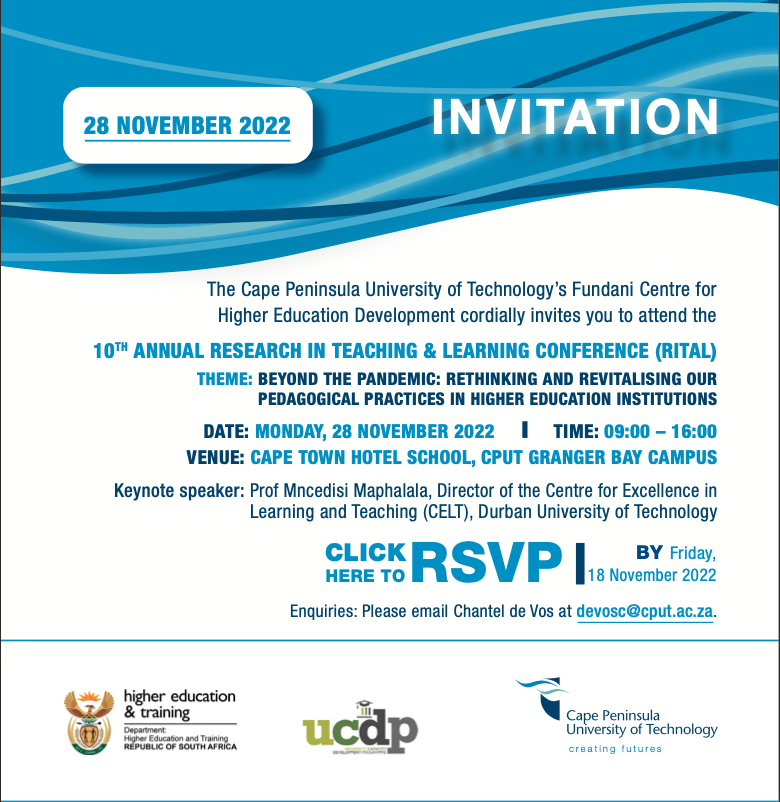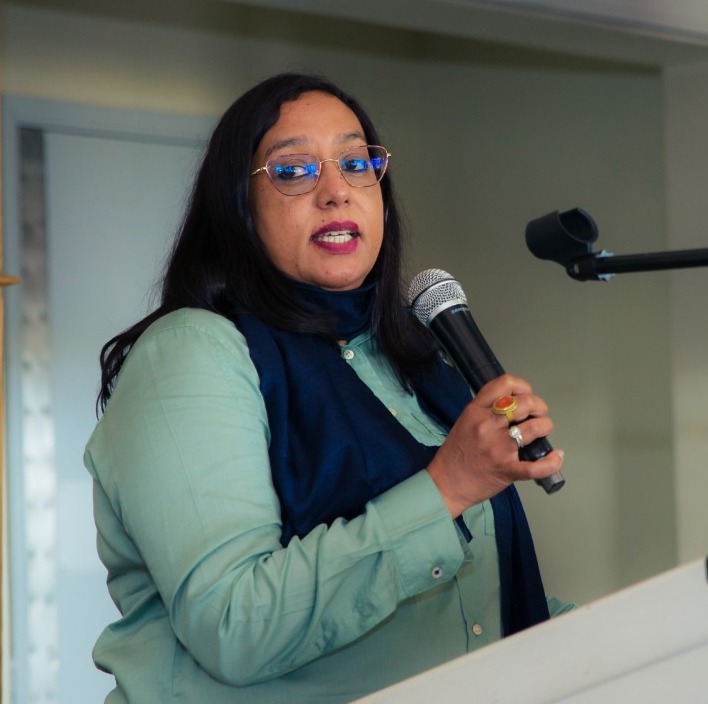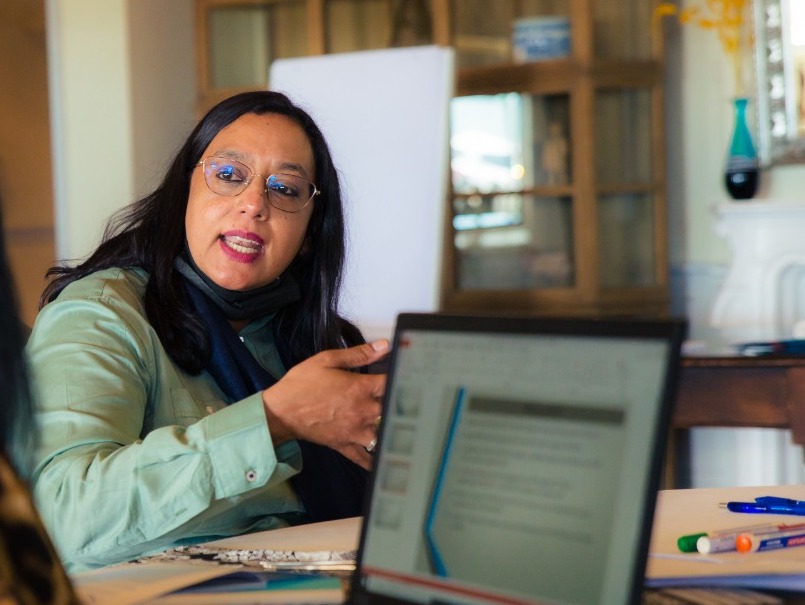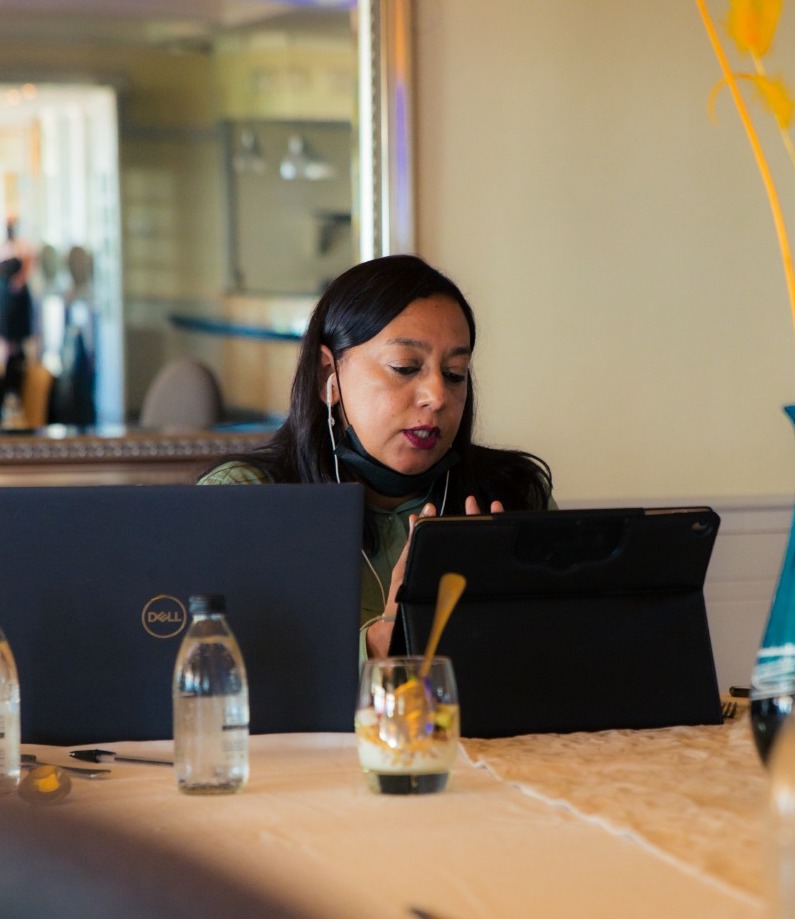
Click here to RSVP.


Click here to RSVP.
In this post I chat to Dr Najwa Norodien-Fataar, chair of the RITAL (Research in Innovation Teaching and Learning) organising committee and Head of Department at Fundani CHED’s Curriculum Development Unit. She shares snippets of her academic journey and reveals the integral role that RITAL and RIFTAL – the fund that makes research in this field possible – have played.

Najwa’s story starts in 2010 when the very first RITAL Conference was held. Not only was she one of the conference’s first presenters, she was also awarded best paper! Here she shares some tips for delivering an award-winning presentation. It’s no wonder that she now heads up both the organising and funding arms of RITAL.

Within two years of presenting her first-ever academic paper at RITAL, Najwa submitted it to the South African Journal of Higher Education where it was published soon after. The focus of her research was student engagement at CPUT as it relates to their on-campus stay and use of digital tools. Najwa explained that 10 years ago the need for e-mentoring already existed, made especially necessary by Fundani’s position outside the CPUT structures of faculties and student residences. She discovered that students who felt more socially connected did better academically.
Najwa’s ability to secure RIFTAL funding for her research and her success at presenting lit an academic flame that burns brightly to this day. While her research focus has shifted slightly to focus more on the experiences of CPUT lecturers as opposed to students, the common thread between her academic interest then and now is her agency and capacity to develop programmes and serve. Her initial insights served students; more recently they serve the academics who engage with those students.
“We have to keep up. We’re on this threshold that requires us to change the way we learn, the way we view students. And I’m sure lecturers have done something extraordinary.”
Dr Najwa Norodien-Fataar

This confidence in lecturers’ capacity to innovate, especially in the past two years, is what excites Najwa for the upcoming 2021 RITAL Conference. In fact, she believes that the focus on digitally influenced pedagogy and lecturers’ experiences will continue into 2022. That will of course mark the 10th year celebration of RITAL as well as its first hybrid iteration. Having presenters and participants join in person as well as from their homes anywhere in the country or the world is an exciting prospect. And a daunting one. But Najwa is convinced that last year’s success with RITAL’s very first virtual iteration bodes well for the organising committee’s future endeavours.
If you’re presenting at the 2021 RITAL conference in two weeks’ time, be sure to take a look at these Tips for Presenting by Najwa. Also check out her numerous publications here.
9th Annual Research in Teaching and Learning (RITAL) Conference Call for Papers
Date: Thursday 25 November 2021
Time: 9h00–16h00
Online virtual conference: Microsoft Teams
The RITAL conference will bring together academics across the disciplines who are interested in discussing institutional, curriculum and pedagogical adaptations during and beyond the COVID-19 pandemic.
Theme: Post-pandemic challenges in higher education: Integrating pedagogy and technology-enhanced teaching and learning practices
The RITAL conference will enable academics to redefine, rethink and re-imagine our roles as lecturers at a university. The rapid shift to emergency remote teaching (ERT) meant that lecturers had to re-learn and adopt new ways of teaching. A combination of synchronous and asynchronous teaching approaches became vital during the COVID-19 pandemic, indicating lecturers’ capacity and openness towards innovation and technology-enhanced learning opportunities. As lecturers moved their content online via the learning management systems (LMS), a key concern was the pedagogical adaptations made during the ERT.
The RITAL conference will allow academics to discuss the integration of pedagogy and technology-enhanced teaching and learning related to these key questions:
How does the transition to ERT influence lecturers’ pedagogical strategies?
How does ERT affect student learning and the social relationships of learning?
How do institutional responsiveness and strategies impact teaching and learningduring the pandemic?
How do lecturers deal with the social inequities of our socio-cultural and educational landscape, such as students’ lack of data and digital technology, students’ motivation to learn and students’ lacking basic resources such as food and electricity?
How does technology-enhanced learning influence our perspective of decolonisationin higher education?
How can technology-enhanced learning lead to transformative learning among our students?
Empirical studies, reflections and conceptual papers will be considered. Academic staff and postgraduate students are invited to submit abstracts that focus on post-pandemic challenges in higher education under any of the following conference sub-themes:
Academic support staff are also encouraged to participate, e.g., the Student Counselling Unit, The Disability Unit, HIV\ AIDS Unit, and the Community Engagement Unit.
IMPORTANT DATES:
Submission of abstracts: 2 November 2021.
Notification of acceptance of abstracts: 8 November 2021.
Abstracts of 200-250 words for online presentations.
For questions, please contact Najwa Norodien-Fataar and Nicolene Pasquallie